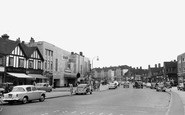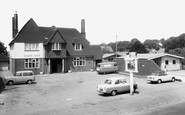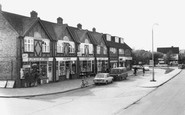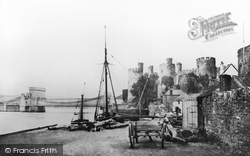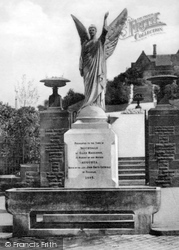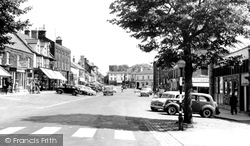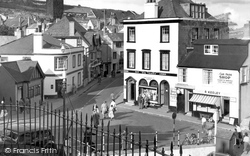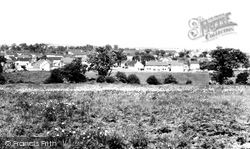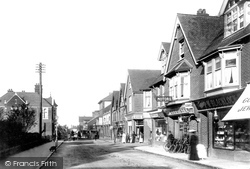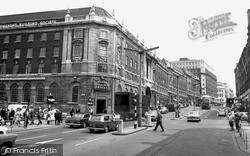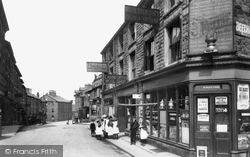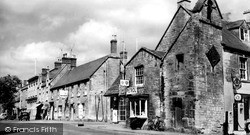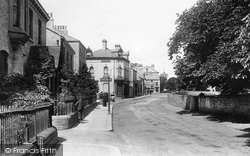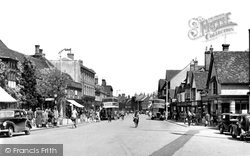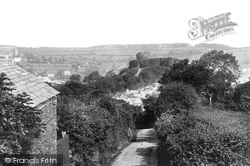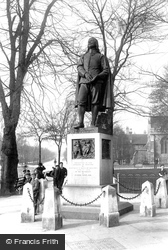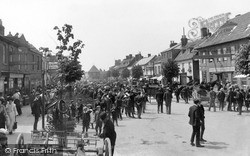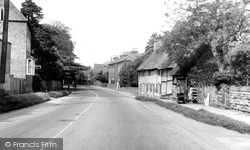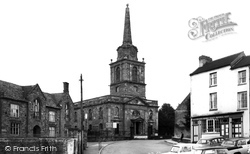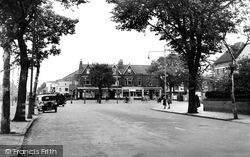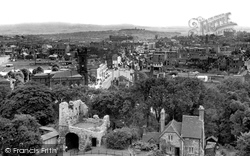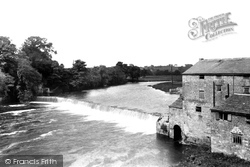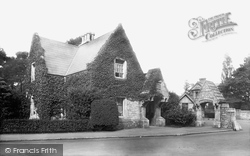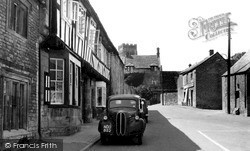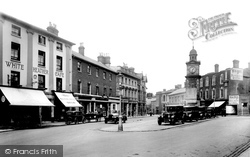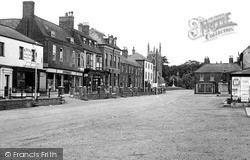Places
26 places found.
Those places high-lighted have photos. All locations may have maps, books and memories.
- Town End, Derbyshire
- Town End, Buckinghamshire
- Town's End, Somerset
- Towns End, Dorset
- Town End, Merseyside
- Town End, Cambridgeshire
- Town's End, Buckinghamshire
- West End Town, Northumberland
- Bolton Town End, Lancashire
- Kearby Town End, Yorkshire
- Town End, Cumbria (near Grange-Over-Sands)
- Town End, Cumbria (near Bowness-On-Windermere)
- Town End, Yorkshire (near Huddersfield)
- Town End, Yorkshire (near Wilberfoss)
- Town End, Cumbria (near Appleby-in-Westmorland)
- Town's End, Dorset (near Melbury Osmond)
- Town's End, Dorset (near Swanage)
- Town End, Cumbria (near Ambleside)
- Town End, Cumbria (near Lakeside)
- Town End, Cumbria (near Kirkby Lonsdale)
- Town End, Cumbria (near Ambleside)
- Town's End, Dorset (near Bere Regis)
- West-end Town, South Glamorgan
- Townend, Derbyshire
- Townend, Strathclyde (near Dumbarton)
- Townend, Staffordshire (near Stone)
Photos
23 photos found. Showing results 3,701 to 23.
Maps
195 maps found.
Books
3 books found. Showing results 4,441 to 3.
Memories
3,719 memories found. Showing results 1,851 to 1,860.
Mothers Birthplace
My mother was born in 21 Meadow Street, and many times I spent a lot of happy hours there. She was Doreen Susanah Howells, and had a sister Gwyneth, a sister Megan, a brother Evan, a brother Leslie, and a brother who died in ...Read more
A memory of Ogmore Vale in 1910 by
Hassobury
I used to go to Hassobury School, Hazel End from 1960 to 1962. It was a lovely old mansion but sadly it is flats now. It was surounded by countryside and we used to go for walks with Mrs Lyle and she used to sit us down then read ...Read more
A memory of Farnham in 1960 by
St Marks School Dukinfield
I went to this school from 1964 - 1970. It has now been demolished. The head teacher was Mrs Finneran and some of the teachers were Miss Baba, Mr Sloane, Mr Cook, Mrs Bintcliff and Miss Hooley. On the corner of the ...Read more
A memory of Dukinfield in 1970
The Fresh Fish Barrow
My parents both grew up in Kingsbury and my Nan lived in Branksome Way. As a child, I remember being taken to visit my Nan on Saturdays, going shopping first and walking all the way up one side of the road and back down the ...Read more
A memory of Kingsbury in 1966 by
An Evacuees Memory
I was evacuated to Over Stowey in 1939 at the start of the Second World War. I was lucky becauseIi was with my mother and brother and sister, who was a babe in arms. I was ten years old and my brother was eight. Two ladies ...Read more
A memory of Over Stowey in 1940 by
Spotted Cow
My grandmother lived in Idsworth Road. When I was a small boy we used to drive down from Scotland for summer and Christmas holidays. Seeing the pub sign was a cause of great excitement for a 4 year old because it meant we were nearly ...Read more
A memory of Cowplain in 1961 by
Wishaw
I was sent to live with my grandparents John and Teen (Christine) McIndoe in Wishaw at the start of theSecond World War. They lived at 62 East Academy Street, and when old enough I attended East Academy Street School. I loved ...Read more
A memory of Wishaw in 1940 by
Shopping At Hamers
I moved to St Giles Avenue with my parents in 1948 when I was 15 years old. Before this group of shops was built, there was a little hut run by Mr Hamer and I remember my dad buying his cigarettes and newspapers there. When the ...Read more
A memory of Ickenham in 1948 by
Life In Borden
I was born and raised in Borden until I got married at the age of 22. My mother and her family all grew up in Borden. My grandfather was the local blacksmith, and I remember very well watching him shoe the big Shire horses and helping ...Read more
A memory of Borden in 1949 by
Alton High Street Tobaconist A Jones
I was born at Southbrook, Lenten Street in 1949. Father ran a shop called A Jones Tobacconist on High Street, which had earlier been my grandfather's (Arthur Jones - known as Jack). I went to school at Mayfield, ...Read more
A memory of Alton in 1958 by
Captions
5,054 captions found. Showing results 4,441 to 4,464.
Set at the mouth of the River Conway, or Conwy, this mediaeval walled town with its famous castle, one of Edward I's 'iron ring' around Wales, is still remarkably self-contained.
Officially described as a `drinking fountain for horses, cattle and dogs`, it became known as the Angel, owing to the 15ft-high white Sicilian marble statue on a Yorkshire stone base.
The newly opened post office of 1956 (right) served the town until the late 1990s, when it was sub- divided into three retail units.
On the other side of Bridge Street are the Rock Point Inn (centre right), where steps and signs lead to its Town View Restaurant.
BASILDON is a New Town, yet it has seen more changes over the past 60 decades than most places in Britain - and it has a history that will fascinate most of its present inhabitants.
This view looks back towards the town centre. These Georgian buildings with their refined sash windows have gone.
This thoroughfare is a continuation of Westgate and Park Lane, and at 80 ft wide is 10 ft wider than Union Street, Aberdeen.
Carnforth, six miles north of Lancaster, has a place in history as a railway town.
Between 1633 and 1860 a bell was tolled daily in the town's 15th-century Curfew Tower owing to an unusual bequest.
This view reveals Boston's elegant and urbane character. Handsome and dignified Georgian houses and villas line the leafy street.
When in the 1950s Reginald Hine, the great Hitchin historian, wrote of the town, 'It is lamentable what we have lost during the last 100 years', he was complaining of the desecration of the buildings and
This photograph was taken from Windmill Hill, the only point in the town that is higher than the castle. The road curving up to the left of the castle is Roydon Road, known at this time as Zulu Road.
This statue of one of Bedforshire's famous sons was made by the noted sculptor, Boehm, in 1873, and presented to the town by the then Duke of Bedford in June 1874.
This view looks south to the old Town Hall, the building in the centre in the distance. The street is thronged with farmers and their families.
In this peaceful scene, the fact that the village has a longstanding domestic industry tradition in framework knitting and basket making is not immediately apparent.
These societies sprang up in the 19th century to help poorer families to save for rainy days, and to help provide decent burials for them.
Development was slow and gradual as the inhabitants dragged a poor existence from the sea and the land.
Standing on a limestone hill, Dudley Castle dominates the town.
In this peaceful scene, the fact that the village has a longstanding domestic industry tradition in framework knitting and basket making is not immediately apparent.
The brewery chimney came down in 1959, and the remaining building became the site of the bus station. On the outskirts of the town was the Naval Training Ship HMS 'Cabot'.
The lodge became known as County Gates because this junction on the main Bournemouth-Poole road was also the boundary between both the two towns and Hampshire and Dorset.
The 15th-century tower of St Peter and St Paul church is on the skyline. It was built by the town's rich inhabitants during a period of religious fervour.
Freed of livestock, the Saturday market became a more congenial place; it was thriving and prosperous, despite competition from a new Monday market introduced in 1883.
Godsmark's (second from left) have been in business and in the same shop for over 80 years, but most of the other businesses have changed. W M Kirk (left) is now Ambridge's Fish and Chip Restaurant.
Places (26)
Photos (23)
Memories (3719)
Books (3)
Maps (195)

